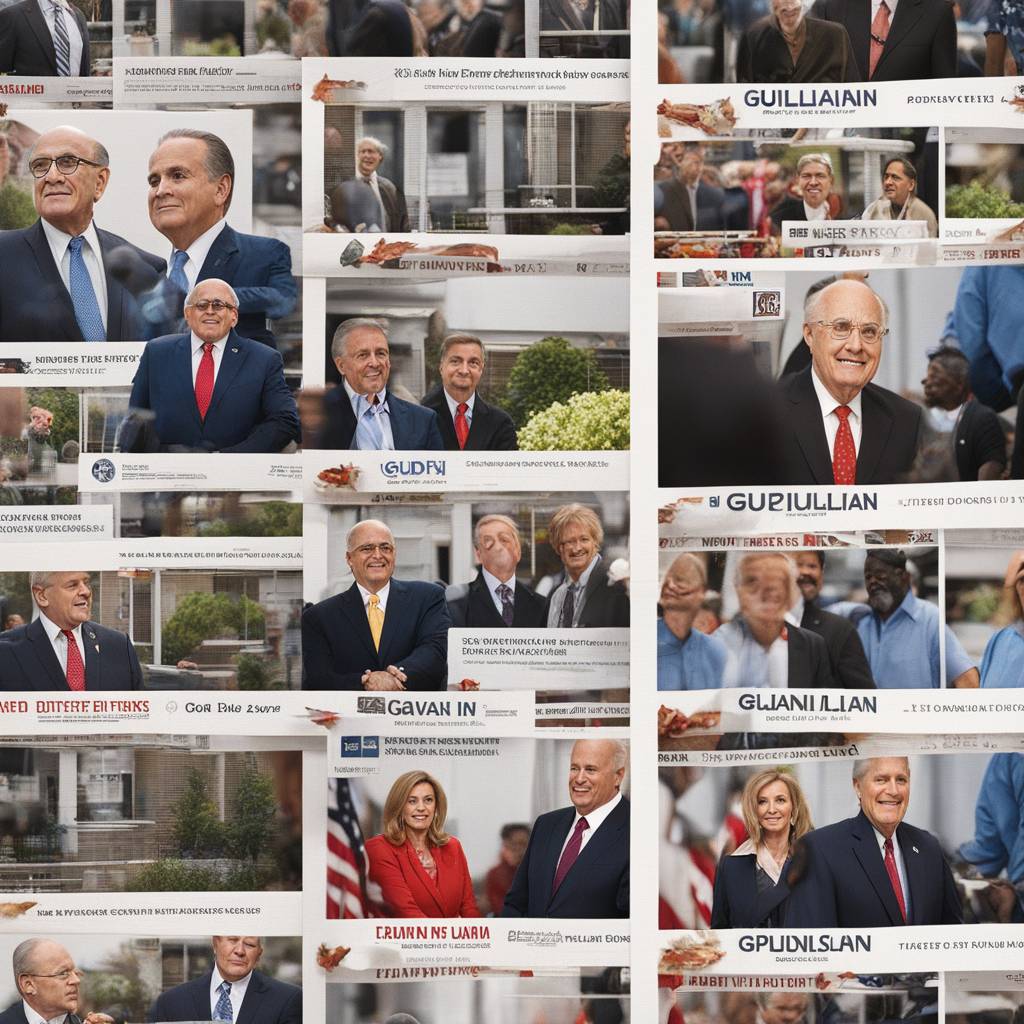A lawsuit filed in relation to a $100,000 donation made to Rudy Giuliani’s legal defense fund by Matthew Martorano alleges that the money rightfully belongs to victims of an alleged online fraud scheme. This donation from Martorano accounted for nearly 13% of all the money raised in the fund. The fund was intended to help Giuliani pay for lawyers in the Georgia election interference case and in a civil defamation case that he lost. The lawsuit claims that the $100,000 donation came from an alleged scam involving an online skincare product. The plaintiff in the lawsuit is seeking to “unwind” the donation to Giuliani.
There is no public evidence to suggest that Giuliani and Martorano know each other. The new civil suit adds another layer of legal issues to Giuliani’s ongoing struggles with his remaining assets. Giuliani filed for bankruptcy protection in December, following a judge’s order to pay $146 million to two Georgia election workers. The attorney who filed the lawsuit alleging fraudulent transfer on behalf of his client argues that Giuliani should give back all the money he received from Martorano. Giuliani’s spokesman, Ted Goodman, stated that the lawsuit is unrelated to them, and declined to comment further. CNBC reached out to lawyers for Martorano, his wife, and other defendants in both the Georgia and California cases, but received no response.
The lawsuit filed in Fulton County sheds light on the alleged online skincare product scam that involved Martorano, his wife, and their company. A judge in San Diego certified a nationwide class in the lawsuit against the skin care sales scammers and the Martoranos, concluding that they deceived banks and credit card companies. The suit maintains that many people were deceived into signing up for a “free trial” of skin care cream products, only to be billed for subscriptions they never agreed to. Martorano’s company, Konnektive, sold payment software to the scammers that allegedly facilitated automated bank fraud.
The new lawsuit names the Martoranos, Konnektive LLC, and two other entities as defendants, but does not include Giuliani. It claims that the defendants have been engaging in asset transfers to evade potential liabilities from the California lawsuit. The suit points out that Martorano made substantial political donations and transferred properties in Georgia shortly after a deposition related to the federal racketeering lawsuit. The plaintiff in the suit questions Martorano’s motive for donating to Giuliani, especially considering his involvement in the alleged fraud scheme. This lawsuit highlights the ongoing legal battles faced by Giuliani and his associates.
The lawsuit asserts that the Martoranos are aware of the potential financial consequences of the pending legal actions against them and have taken steps to protect their assets through various transfers. Martorano’s significant political donations, including to Giuliani’s legal defense fund, raise suspicions about the origin of the funds. People who were affected by the skincare product scam, like Nancy Simonick, believe that if Giuliani knew the money was gained through fraudulent means, he should return it. The lawyer representing the plaintiffs in the California lawsuit also expressed concerns about Martorano’s donations and asset transfers, questioning the underlying motives behind these actions.
The legal proceedings around Martorano’s alleged involvement in the skincare fraud scheme and the subsequent donations and asset transfers raise questions about the accountability and responsibility of those involved. The ongoing lawsuits in Georgia and California shed light on the complexities of financial and legal entanglements in cases of alleged fraud. The allegations against Martorano and his associates, as well as the implications for Giuliani, highlight the challenges of navigating legal battles and financial obligations amidst controversial circumstances. As the lawsuits progress, the outcomes will determine the extent of liability and accountability for those accused of wrongdoing in these complex legal disputes.


